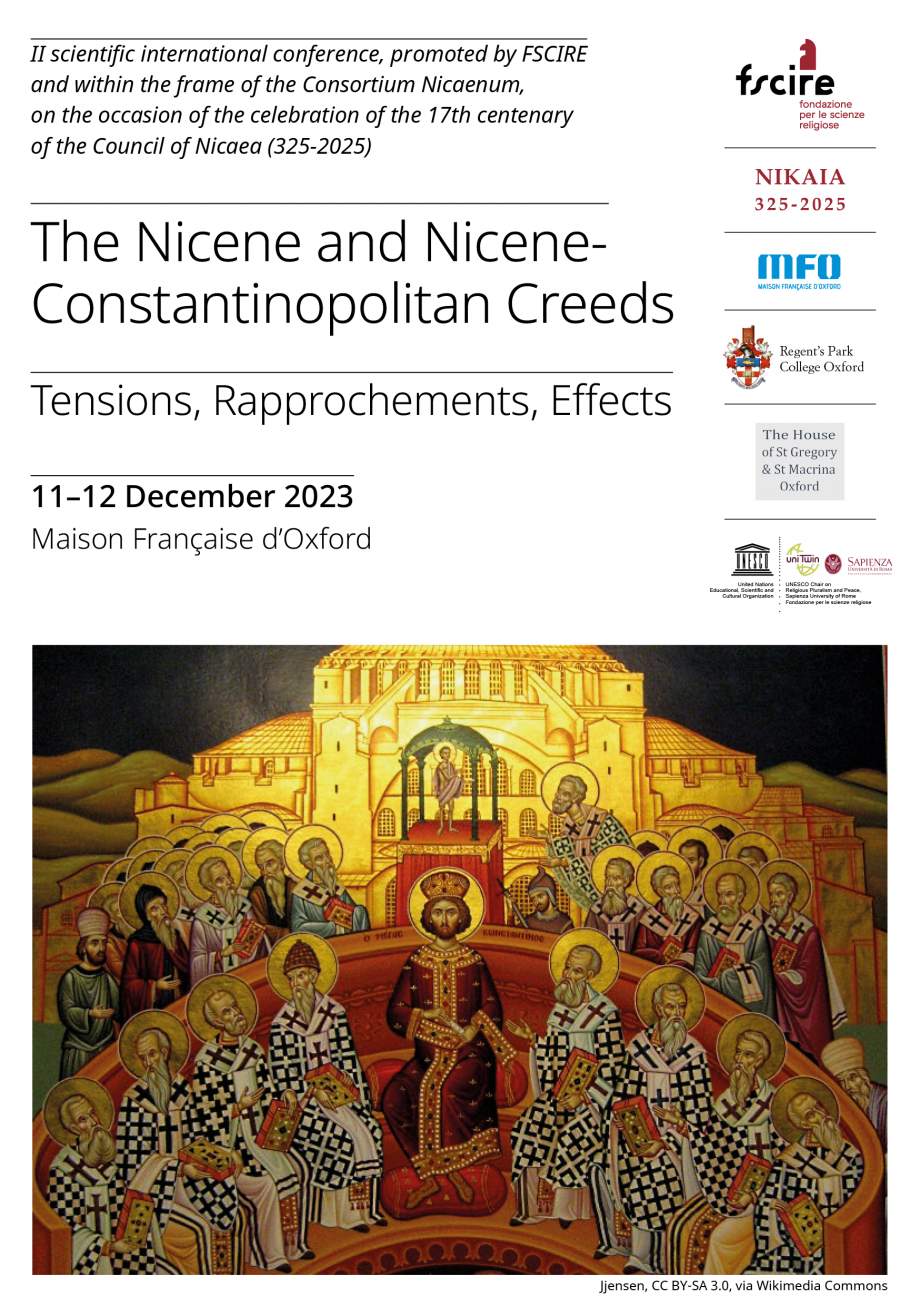The Nicene and Nicene-Constantinopolitan Creeds
Tensions, Rapprochements, Effects
(11-12 December 2023, Oxford)
The second scientific international conference, promoted by FSCIRE, on the occasion of the celebration of the 17th centenary of the Council of Nicaea (325-2025) will be held on 11th-12th December 2023 at the Maison Française d’Oxford.
During the first conference in Istanbul, Wolfram Kinzig emphasized the significance of examining the creed of Nicaea and its legacy:
To look at the Creed of Nicaea from the perspective of today's church means to look at it through the lens of the Creed of Constantinople, because in the later tradition, this latter creed was considered to preserve Nicene theology to such an extent that it superseded the original version and was often inaccurately labelled the “Nicene creed”.
The purpose of this conference is therefore twofold. Firstly, it aims to investigate the tensions emerging right after the council of Nicaea regarding its Creed and the subsequent proliferation of new creeds during and around the councils held in the 4th century. Secondly, it aims to explore the tensions that emerged after the inclusion of the Nicene-Constantinopolitan creed in the definitio fidei of Chalcedon (451). This creed faced opposition, beginning with the doubts in the so-called miaphysite churches that refuted Chalcedon and its formulation of faith.
The tensions surrounding the Nicene and Nicene-Constantinopolitan creed exceeds the Late Antique period and Oriental Roman empire. This topic urges to examine the long-durée and the wide geographical extension of these frictions. Shortly after the definitive affirmation of the Nicene-Constantinopolitan Creed, the inclusion of the filioque in the creed, concerning the procession of the Holy Spirit, generated a new series of controversies. Also in the Latin context, the adoption of the Nicene-Constantinopolitan creed during the reign of Charlemagne and the subsequent inclusion the Libri Carolini are also relevant for an extensive understanding of the history of the Nicene-Constantinopolitan creed in the Middle Ages. In the Modern Era, both the Reformation and the Counter-Reformation used the Nicene-Constantinopolitan creed – often labelled simply as Nicene creed – and other creeds (e.g., the creed of the Apostles) to support their respective positions in the polemical discourse. Furthermore, tensions related to the Nicene-Constantinopolitan creed were present globally due to the presence of European missionaries, as demonstrated by events such as the synod of Diamper 1599 and the changes introduced concerning the creed of the St. Thomas Christians.
Examining the Nicene and Nicene-Constantinopolitan creeds necessitates considering their impact on the theological thought in the 20th century. Theologians such as W. Pannenberg, H. U. von Balthasar and H. Küng interpreted the Nicene-Constantinopolitan Creed as a dynamic reality bearing universal ecumenical significance for contextualizing the Christian faith.
In conclusion, this conference aims to explore both the tensions and rapprochements between the Nicene/Nicene-Constantinopolitan and other Christian creeds. The focus will involve an in-depth study concerning the points of convergence and divergence among these creeds, shedding light on the theological, historical and liturgical factors that have influenced their differences and their respective uses. Through the speeches delivered and the subsequent discussion, the conference seeks to encourage a better understanding of the complex dynamics between the Nicene-Constantinopolitan and other Christian creeds, thereby providing cues for a broader theological reflection within inclusive ecumenical perspective.

